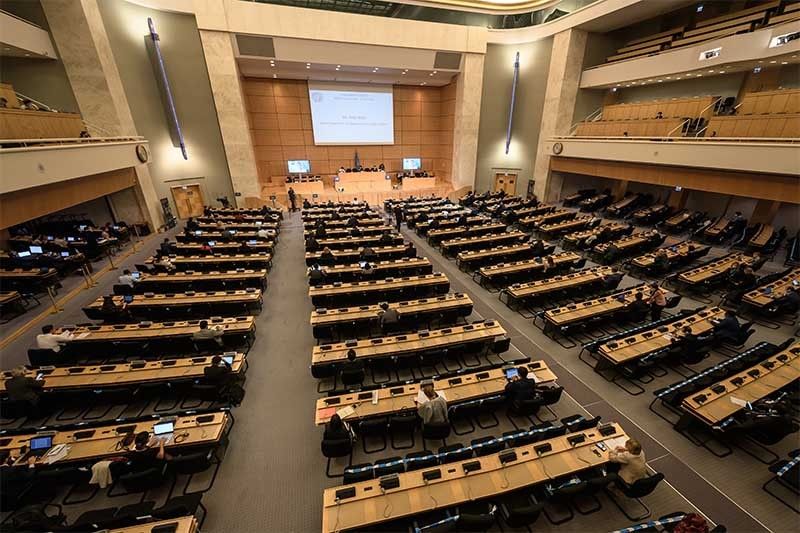Citing 'dead ends' for accountability in Philippines, groups urge probe by UN rights body

MANILA, Philippines — Human rights organizations are worried that if the United Nations Human Rights Council fails to take concrete steps to address the situation in the Philippines, more people will die and a climate of impunity will continue to persist.
The groups said they are hitting "dead ends" in seeking justice through official government channels.
In a forum Tuesday, the Philippine Alliance of Human Rights Advocates, Karapatan, Amnesty International and Human Rights Watch reiterated the call for the UN Human Rights Council to launch a probe into alleged extrajudicial killings and rights violations in the country.
The Human Rights Council—an inter-governmental body within the UN system responsible for addressing human rights violations and making recommendations on them—began its 45th session last week. It will last until October 6.
The situation of the Philippines is expected to be on the council’s agenda.
“We are hitting dead ends, so to speak, domestically in terms of redress mechanisms, even as we continue to access them all—from the courts, to the CHR, to Congress, to the police, to the Justice department. And this illustrates the levels of impunity and the constricted civic and democratic spaces reached at this point,” Cristina Palabay, Karapatan secretary general, said.
“Which is why international human rights bodies, such as the HRC, play an important role, whether to aid in delivering justice and accountability and deter further violations, or to give an imprimatur to the current situation and to sign off to a death sentence for us Filipino defenders whose lives are at daily risk,” she added.
While action from the council will not bring back victims, it “will and can prevent more deaths and spare others from the pain and trauma that thousands of families are experiencing,” Rachel Choa-Howard, Amnesty International researcher, said.
PAHRA chairperson Nymia Simbulan, for her part, was worried that if a “softer” resolution is adopted by the council, it will be used by the Philippine government to justify its “violent and repressive statements and policies.”
‘Out of touch’ draft text
Laila Matar, HRW deputy director for UN, said the draft resolution of the situation in the Philippines being prepared by Iceland was “off-note” and “fundamentally not credible.”
“[It] focuses on technical assistance and capacity building. It fails to reflect on the gravity of situation on the ground,” Matar said.
She explained that the draft text encourages engagement with domestic accountability processes and urges the government to pursue partnership with civil societies.
“This text before us at the HRC does not even heed the most minimalist recommendation of the high commissioner for comprehensive monitoring and reporting and does not call on the implementation of high commissioner’s recommendation,” Matar said.
Last year, the council adopted a resolution tabled by Iceland mandating the UN High Commissioner for Human Rights to prepare a comprehensive report on the human rights situation in the Philippines.
In the council’s 44th session last June, the UN High Commissioner for Human Rights said the government’s war on drugs and incitement to violence from the country’s top leaders have led to grave human rights violations, including “widespread and systematic” extrajudicial killings.
It said the Human Rights Council should consider options for international accountability measures should there be an absence of clear outcomes from domestic mechanisms.
Matar said there is still time for the draft resolution to take a different route as she noted that some member states and civil society organizations have strongly spoken up to improve the draft text.
“Our concern is that when the starting point is that low, when it is so out of touch with the reality on the ground, can we really end up with a credible text? I hope is that we will,” Matar said.
“It’s a question on whether the HRC will be able to stand at the right side of history or whether they will endorse a flawed approach that will only encourage perpetrators on the ground to commit more killings and violations,” she added.
- Latest
- Trending

































